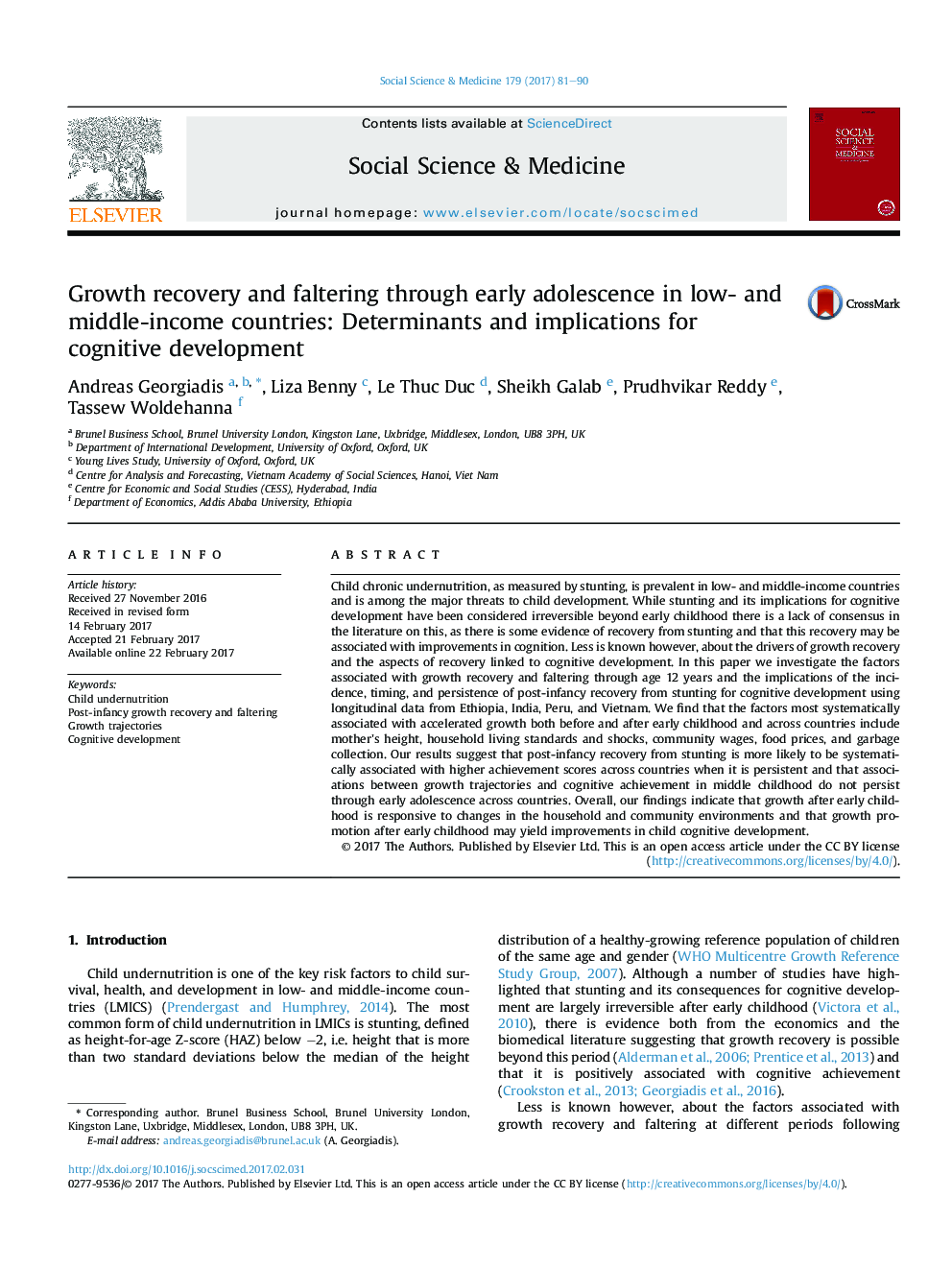| Article ID | Journal | Published Year | Pages | File Type |
|---|---|---|---|---|
| 5046626 | Social Science & Medicine | 2017 | 10 Pages |
â¢Living standards and costs are key predictors of child growth through age 12 years.â¢Persistent post-infancy growth recovery is strongly associated with child cognition.â¢Growth after early childhood is responsive to changes in the environment.â¢Sustained post-infancy growth promotion may improve child cognition.
Child chronic undernutrition, as measured by stunting, is prevalent in low- and middle-income countries and is among the major threats to child development. While stunting and its implications for cognitive development have been considered irreversible beyond early childhood there is a lack of consensus in the literature on this, as there is some evidence of recovery from stunting and that this recovery may be associated with improvements in cognition. Less is known however, about the drivers of growth recovery and the aspects of recovery linked to cognitive development. In this paper we investigate the factors associated with growth recovery and faltering through age 12 years and the implications of the incidence, timing, and persistence of post-infancy recovery from stunting for cognitive development using longitudinal data from Ethiopia, India, Peru, and Vietnam. We find that the factors most systematically associated with accelerated growth both before and after early childhood and across countries include mother's height, household living standards and shocks, community wages, food prices, and garbage collection. Our results suggest that post-infancy recovery from stunting is more likely to be systematically associated with higher achievement scores across countries when it is persistent and that associations between growth trajectories and cognitive achievement in middle childhood do not persist through early adolescence across countries. Overall, our findings indicate that growth after early childhood is responsive to changes in the household and community environments and that growth promotion after early childhood may yield improvements in child cognitive development.
